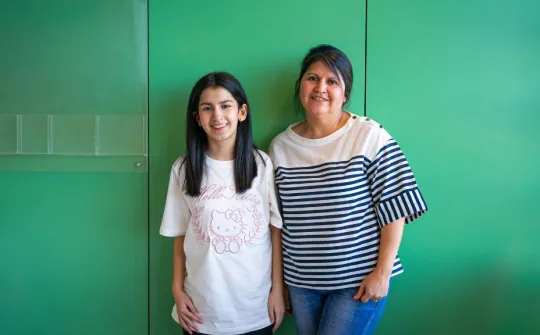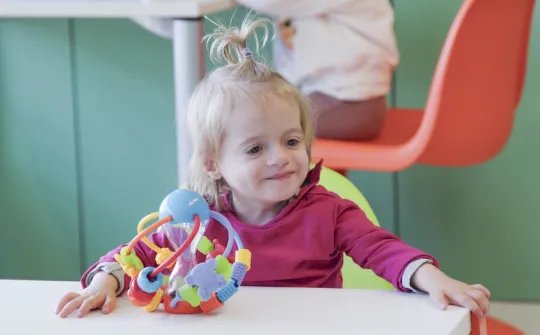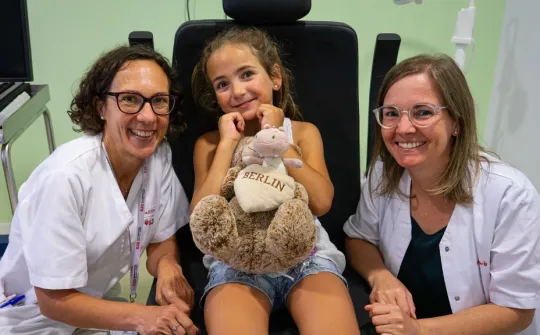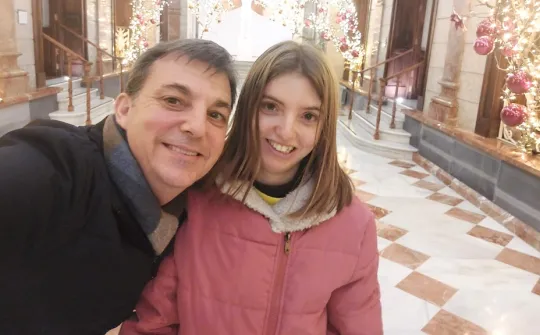A patient successfully overcomes two fetal surgeries and an intervention for congenital diaphragmatic hernia at SJD Barcelona Children's Hospital
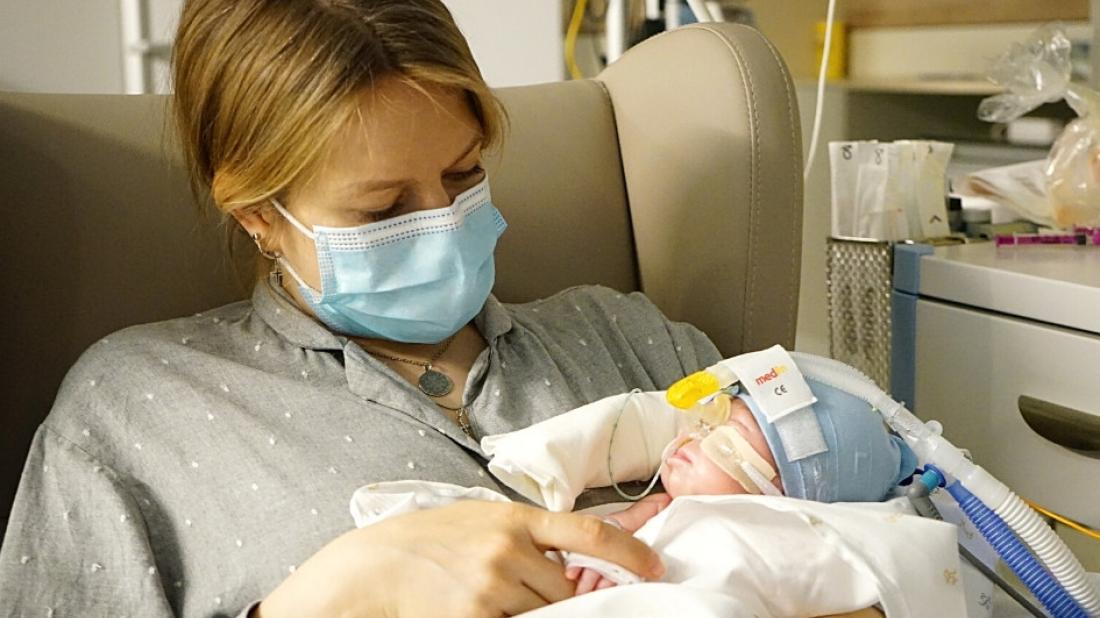
The baby, who recovered in just under a month, was attended by teams from the Fetal Medicine, Gynecology and Obstetrics, Pediatric Surgery, and Neonatology Units.
Anzhelica had had several miscarriages prior to giving birth to Vasilisa. Although she initially had an uneventful pregnancy and was doing very well, at the 18-week ultrasound, her doctor in Ukraine detected a severe malformation in the embryo and referred her to another hospital in Kyiv, where the fetus was diagnosed with a congenital diaphragmatic hernia (CDH) on the right side of the diaphragm, much less frequent than on the left, and generally more severe. In her country, they could not see the option of saving the infant's life.
They travelled to a Moscow hospital, where various specialists recommended the family go to a European hospital, which staffed experts in fetal surgery. The family considered all their options, and finally contacted the SJD Barcelona Children's Hospital.
Doctor Eduard Gratacós, specialist in fetal medicine, commented that "when I spoke to the family, we addressed all their concerns and conveyed a lot of confidence, because the life of their daughter was at stake. I assured them they would receive exceptional personal treatment and be attended by a department that would care for them the moment they left their country.
The team at BCNatal (SJD – Clínic), along with other specialists, designed the current CDH surgical technique and was the world's first to implement it.
SJD Barcelona Children's Hospital is the centre with the greatest experience worldwide in these cases, both clinically and in terms of innovation, since we are one of the groups with the most scientific production and innovations internationally in fetal surgery in general, and specifically in this technique.
"We decided to come to Barcelona because we knew that Dr Gratacós and his team were the first in the world to perform this type of intervention. We saw that the Hospital had advanced technology, and they also wanted to help us and knew how to do it", says Anzhelica, Vasilisa's mother.
With a congenital diaphragmatic hernia, surgery is essential
The first intervention, a fetoscopy, took place in SJD Barcelona Children's Hospital in the pregnancy's 28th week. With this technique, the trachea was obstructed to increase the volume of the fetus's lungs, which encourages their maturation and means the newborn is born with a qualitatively better set of lungs.
According to pediatric surgeon Jordi Prat Ortells, "with this operation, the survival rate for a baby with congenital diaphragmatic hernia improves by 20 to 25%. A newborn can not survive a CDH without intervention. The success of the procedure depends on many factors, but surgery is an essential step. Stabilising the baby is fundamental, as is the work of the neonatology team. If the surgery goes well, the expectation is that the girl will have a fairly normal life in the future."
After four weeks, a second fetoscopy was performed to remove the tracheal balloon implanted in the first intervention. This surgery, like the one before, was a success and was carried out without significant complications. The fetus responded well and continued to grow until the pregnancy's 38th week, when the birth was induced. The little girl, named Vasilisa, required immediate post-natal care at the Neonatology Department of SJD Barcelona Children's Hospital.
When the newborn was stabilised 48 hours after birth, an operation was performed to completely repair the congenital diaphragmatic hernia by an incision below the right ribcage. The surgery consisted of reducing the hernia and closing the diaphragmatic defect with some mesh. The operation was a success.
Finally, two days after the operation, Anzhelica could hold her beloved daughter for the first time. According to the medical team, Vasilisa's progress is excellent, and she has not had any serious complications after the operation. She will require periodic monitoring at SJD Barcelona Children's Hospital to ensure everything progresses as it should.
"I'm so pleased with the entire team of professionals at SJD Barcelona Children's Hospital. For me, it was so important to understand what was happening at all times, plus the emotional support from the nurses" says Anzhelica. "What's more, during my stay, I met other families going through the same situation, and this has helped me understand the problem".
